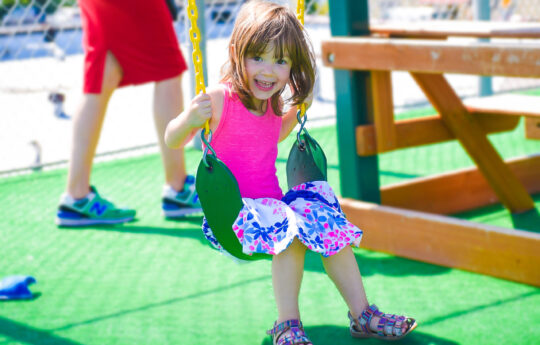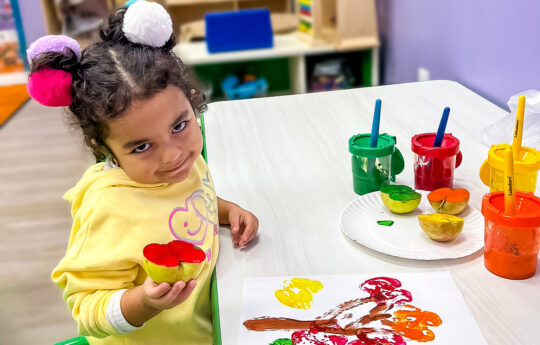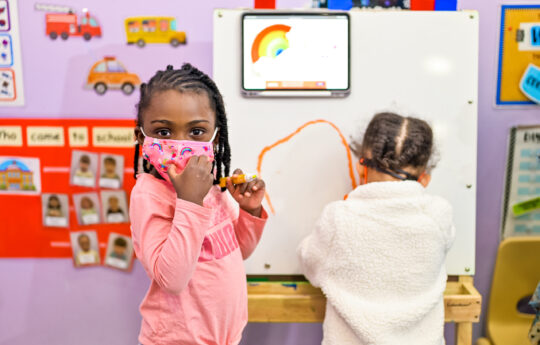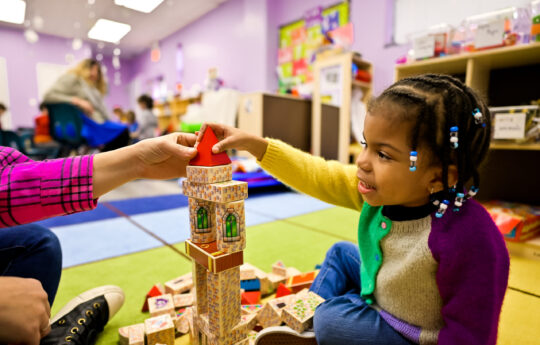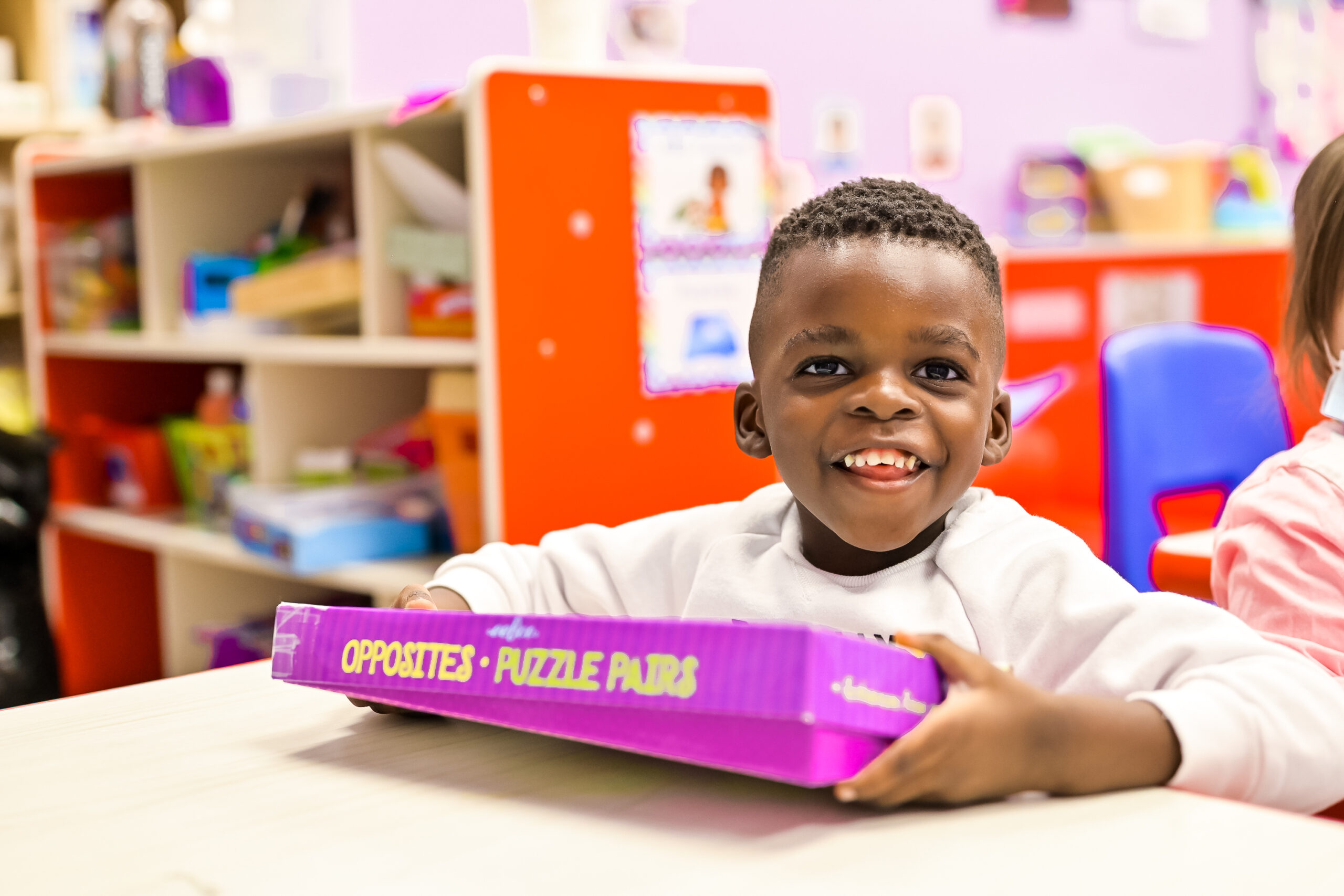
While it’s easy to read the paper and feel like you are reading nothing but bad news, see nothing but bad news, one positive trend you might have noticed is the increasingly proactive measures being taken to promote inclusion across all different aspects of society.
And childcare is no exception – a child is a child, after all. In fact, inclusivity is something that the industry strongly encourages!
Through Southern Solutions’ childcare courses, you will see how we believe that including all children in your childcare stands to build more empathetic, understanding children – and adults.
What is inclusivity in childcare?
At Southern Solutions, we believe that childcare should be a positive environment where all children can learn, develop, grow, and feel safe.
This goes for all children, regardless of their physical or mental traits.
Inclusivity in child care is actually very simple. All it refers to is efforts to accommodate infants, toddlers, and preschool children with additional needs and to give them equal opportunities to participate.
Inclusivity boils down to three things:
- Access – physical barriers are removed
- Participation – all children are involved in your activities
- Support – resources, training and activities to help children with special needs
Inclusion is about promoting a sense of acceptance, belongingness and participation.
Regardless of a child’s background and abilities, everyone is equal and should be given the same opportunities as others in childcare.
Why you should include inclusivity in your childcare centre
When it comes to inclusivity, there are a number of advantages that little ones can benefit from – even if they don’t realise it:
How inclusivity helps children with special needs
- Encourages learning through observation and interaction
- Helps build important friendships and form bonds
- Develops and refines their social skills
- Provides a safe learning environment
How inclusivity helps those without special needs
- Increases empathy for others
- Teaches acceptance and appreciation for individual differences
- Helps fight the stigma towards disability
So that’s the “why”… but what about the “how?”
Children both with and without special needs benefit from inclusion policies – but only if you encourage and promote it at your childcare.
Including children with additional needs is only the beginning. Creating a positive environment is an altogether different story.
Fortunately, there are some simple ways childcare educators can promote positivity and acceptance.
Through these, we can shape positive behavior and attitudes towards those with disabilities or special needs further down the line.
R-E-S-P-E-C-T
What’s the first ingredient in creating an inclusive environment?
Respect.
If children with special needs don’t feel comfortable surrounded around their peers, they’re not going to feel included, regardless of your official policy. That’s why an environment of kindness and respect is essential.
Furthermore, children are like sponges – they absorb what they see and hear, and learn by emulating. If they’re placed in a violent environment, their behaviour may well reflect that.
That’s why it’s so important that you encourage an atmosphere that promotes inclusion, equality and kindliness.
This way, other children take on a respectful and kind attitude towards those with special needs – on they’ll (hopefully) hold for the rest of their lives.
Encouraging dialogue
If there’s one thing you can’t take away from children, it’s their curiosity – it’s one of their cutest (and simultaneously, most aggravating!) traits.
Don’t be surprised if you get a lot of questions from them about their peers with special needs!
Tact is important.
But it’s also important that you acknowledge their questions and give them straightforward and honest answers.
By encouraging a healthy dialogue between you and the children, you make it easier for them to understand what’s going on, and to accept and appreciate others.
Facilitating play
Play is an integral part of early childhood learning, playing a fundamental role in the development of motor skills, as well as social and language skills.
It’s also a great tool for encouraging inclusivity.
Nothing breaks down barriers between kids like play. Any parent can attest to that – even the shyest child opens up if there’s a game or activity to be enjoyed!
To aid in the creation of healthy relationships within your childcare centre, you can facilitate games and activities that accommodate for both able-bodied children and those with special needs.
There are countless activities and games children can enjoy together. Educators can collaborate with parents to come up with activities and games that all children can enjoy together.
Enrol in NSW’s leading childcare courses!
Study childcare with Southern Solutions
With 3.4% of all Aussie toddlers diagnosed with some sort of disability, inclusion isn’t something childcare educators can ignore.
At Southern Solutions, we believe in equality and in giving everyone an equal opportunity – this is why we are advocating inclusivity not only in our courses but in how we deliver these courses, too:
Our flexible payment options, government funding and recognition of prior learning (RPL) courses (including life experience) give people from all walks of life the opportunity to enter the ever-growing childcare industry.
If you’re interested in learning from an education centre that cares not only for the children you’ll be shaping but also its students, be sure to remember the Southern Solutions name.
- We have training centres in Sydney, Brisbane, and Melbourne
- Courses start on the 17th of each month – start when you’re ready!
- We offer flexible full- and part-time studying options
Want to chat? Contact a career consultant today on 1300 656 321 or fill in this form and we’ll get in touch with you!
While it’s easy to read the paper and feel like you are reading nothing but bad news, see nothing but bad news, one positive trend you might have noticed is the increasingly proactive measures being taken to promote inclusion across all different aspects of society.
And childcare is no exception – a child is a child, after all. In fact, inclusivity is something that the industry strongly encourages!
Through Southern Solutions’ childcare courses, you will see how we believe that including all children in your childcare stands to build more empathetic, understanding children – and adults.
What is inclusivity in childcare?
At Southern Solutions, we believe that childcare should be a positive environment where all children can learn, develop, grow, and feel safe.
This goes for all children, regardless of their physical or mental traits.
Inclusivity in child care is actually very simple. All it refers to is efforts to accommodate infants, toddlers, and preschool children with additional needs and to give them equal opportunities to participate.
Inclusivity boils down to three things:
- Access – physical barriers are removed
- Participation – all children are involved in your activities
- Support – resources, training and activities to help children with special needs
Inclusion is about promoting a sense of acceptance, belongingness and participation.
Regardless of a child’s background and abilities, everyone is equal and should be given the same opportunities as others in childcare.
Why you should include inclusivity in your childcare centre
When it comes to inclusivity, there are a number of advantages that little ones can benefit from – even if they don’t realise it:
How inclusivity helps children with special needs
- Encourages learning through observation and interaction
- Helps build important friendships and form bonds
- Develops and refines their social skills
- Provides a safe learning environment
How inclusivity helps those without special needs
- Increases empathy for others
- Teaches acceptance and appreciation for individual differences
- Helps fight the stigma towards disability
So that’s the “why”… but what about the “how?”
Children both with and without special needs benefit from inclusion policies – but only if you encourage and promote it at your childcare.
Including children with additional needs is only the beginning. Creating a positive environment is an altogether different story.
Fortunately, there are some simple ways childcare educators can promote positivity and acceptance.
Through these, we can shape positive behavior and attitudes towards those with disabilities or special needs further down the line.
R-E-S-P-E-C-T
What’s the first ingredient in creating an inclusive environment?
Respect.
If children with special needs don’t feel comfortable surrounded around their peers, they’re not going to feel included, regardless of your official policy. That’s why an environment of kindness and respect is essential.
Furthermore, children are like sponges – they absorb what they see and hear, and learn by emulating. If they’re placed in a violent environment, their behaviour may well reflect that.
That’s why it’s so important that you encourage an atmosphere that promotes inclusion, equality and kindliness.
This way, other children take on a respectful and kind attitude towards those with special needs – on they’ll (hopefully) hold for the rest of their lives.
Encouraging dialogue
If there’s one thing you can’t take away from children, it’s their curiosity – it’s one of their cutest (and simultaneously, most aggravating!) traits.
Don’t be surprised if you get a lot of questions from them about their peers with special needs!
Tact is important.
But it’s also important that you acknowledge their questions and give them straightforward and honest answers.
By encouraging a healthy dialogue between you and the children, you make it easier for them to understand what’s going on, and to accept and appreciate others.
Facilitating play
Play is an integral part of early childhood learning, playing a fundamental role in the development of motor skills, as well as social and language skills.
It’s also a great tool for encouraging inclusivity.
Nothing breaks down barriers between kids like play. Any parent can attest to that – even the shyest child opens up if there’s a game or activity to be enjoyed!
To aid in the creation of healthy relationships within your childcare centre, you can facilitate games and activities that accommodate for both able-bodied children and those with special needs.
There are countless activities and games children can enjoy together. Educators can collaborate with parents to come up with activities and games that all children can enjoy together.
Enrol in NSW’s leading childcare courses!
Study childcare with Southern Solutions
With 3.4% of all Aussie toddlers diagnosed with some sort of disability, inclusion isn’t something childcare educators can ignore.
At Southern Solutions, we believe in equality and in giving everyone an equal opportunity – this is why we are advocating inclusivity not only in our courses but in how we deliver these courses, too:
Our flexible payment options, government funding and recognition of prior learning (RPL) courses (including life experience) give people from all walks of life the opportunity to enter the ever-growing childcare industry.
If you’re interested in learning from an education centre that cares not only for the children you’ll be shaping but also its students, be sure to remember the Southern Solutions name.
- We have training centres in Sydney, Brisbane, and Melbourne
- Courses start on the 17th of each month – start when you’re ready!
- We offer flexible full- and part-time studying options
Want to chat? Contact a career consultant today on 1300 656 321 or fill in this form and we’ll get in touch with you!
The post Study childcare to learn how to encourage inclusivity in children appeared first on Southern Solutions Training.

